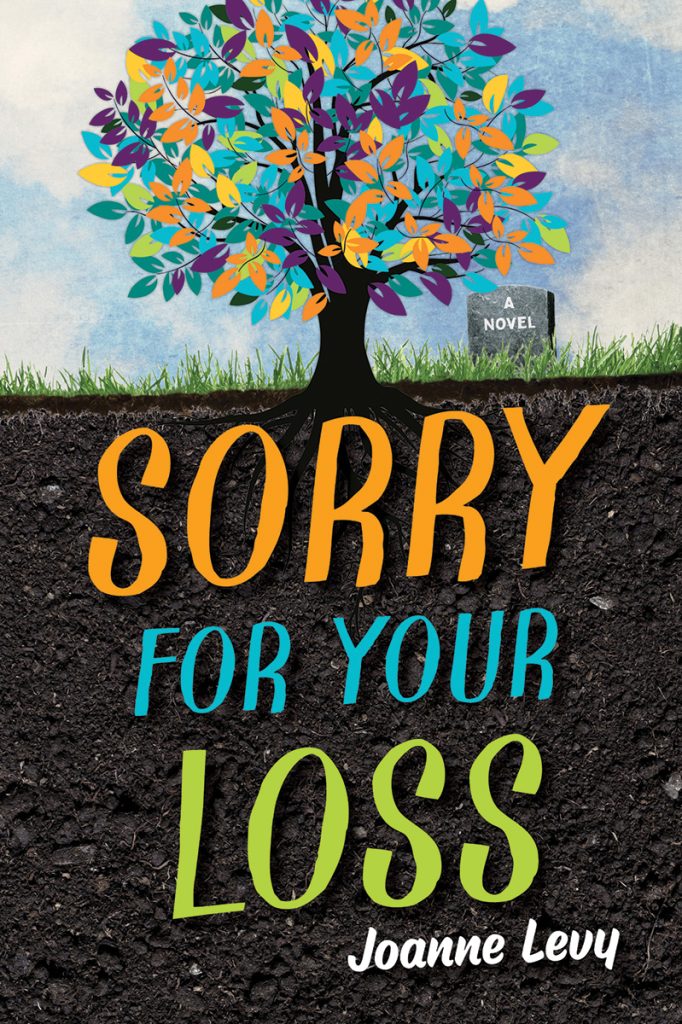★ “A heartfelt and expertly written tale of loss, family, and friendship that will have readers blinking back their tears…Beautiful and sincere.”—Kirkus Reviews, starred review
Evie Walman is not obsessed with death.
She does think about it a lot, though, but only because her family runs a Jewish funeral home. At twelve, Evie already knows she’s going to be a funeral director when she grows up. So what if the kids at school call her “corpse girl” and say she smells like death? They’re just mean and don’t get how important it is to have someone take care of things when your world is falling apart.
Evie loves dusting caskets, polishing pews, and vacuuming the chapel—and on funeral days, she dresses up and hands out tissues and offers her condolences to mourners. She doesn’t normally help her parents with the grieving families directly, until one day when they ask her to help with Oren, a boy who was in a horrific car accident that killed both his parents. Oren refuses to speak and Evie, who is nursing her own private grief, is determined to find a way to help him deal with his loss.
* * *
Sorry For Your Loss comes out next week on Tuesday, October 12! Ahead of the book’s release, author Joanne Levy answered some questions for the Orca Blog about her research process, writing about grief and more.
Levy will also be doing a virtual reading and discussion on Wednesday, October 30. Register now! (FREE)
Sorry For Your Loss is available to pre-order from your favorite bookstores, ebook retailers and orcabook.com.
1. What is your newest book, Sorry For Your Loss, about?
As one might guess, Sorry For Your Loss, my newest book for tweens, is about death and, well, loss. But it’s not just a sad story about grief. It’s also about friendship and crafting and what happens when we die, as in, what happens to our bodies. The book is told through the eyes of Evie, a twelve-year-old girl who already knows she wants to be a funeral director like her parents when she grows up. Evie, who thinks she knows a lot about grief already, finds out she still has a lot to learn when she meets a boy who has just suffered a terrible tragedy. What makes this story a bit different from other books about death and grief is that the reader is given behind-the-scenes access to a family-owned and operated funeral home.
2. What inspired you to write a story that takes place in a funeral home?
My dad was a big part of my inspiration. He manages a small funeral home in my hometown, which gave me the idea and the easy access to do research. Because he came to work there later in life, first as a volunteer and then as the manager, I didn’t grow up entrenched in the business the way Evie does in the book, but I have always found the funeral industry—and funerals themselves—fascinating. It’s such important work, but it’s not talked about a lot—especially to kids. That doesn’t mean kids aren’t curious about what happens to us when we die, though, so I knew this was my story to write—with some help from my dad, of course.
3. If you had to describe your character Evie in three words what would they be?
Chatty, caring, earnest. Did I mention chatty?
4. Sorry For Your Loss deals with a lot of heavy topics like death and grief but manages to still have light and humorous moments. How do you find the right balance in your writing?
It’s a basic truth that I will do nearly anything to get a laugh. If I can get a reader to laugh out loud while reading one of my books? That’s the ultimate compliment. Sorry For Your Loss is the heaviest book I’ve ever written, but I think that even the most serious books have places for humor in them. In fact, those lighter moments are necessary as a tension-breaker between the difficult and heavy scenes. If it was all tragedy and hardship, the reader would be exhausted and may put the book down because it’s too hard to get through.
I think people in difficult jobs—like funeral directors, first responders and medical professionals, who deal with life and death daily—often turn to humor as a way of coping with all the tough stuff. It’s a very human thing to do and I think we all need that from time to time. That said, I didn’t want this book to be slapstick, so I was very conscious to make sure every joke was in the right spot, was organic and didn’t take away from anything. I take my jokes very seriously. No, really.
5. What are the challenges of writing about heavier themes, like illness or death, for young readers?
Getting that perfect balance. Making it interesting and accessible without terrifying kids. I wanted to be honest and show a lot of what happens behind the scenes at the funeral home and what happens when we die. But the last thing I want to do is give a kid nightmares or more worries than they already have. Illness and death are a part of life and I don’t think we can (or should) hide any of that from kids, but at the same time, I feel a responsibility to come at the tough subject matter in a way that’s both honest and gentle at the same time.
6. If you had to be stuck on a desert island with one of the characters from your book, who would you choose? Why?
That is such a hard call between Evie and Oren. I love both of them, but for such different reasons. I am a natural introvert like Oren, so I can relate to him. Plus, even though we don’t see him talking all that much in the book, he’s pretty funny, so I think we’d have fun together. But Evie is so earnest and chatty that I’d never have to worry about holding up my half of the conversation – she would definitely take over there. No lengthy pauses with Evie around! So… my answer is both of them? Please don’t make me choose.
7. What do you hope readers will get from reading Sorry For Your Loss?
I truly hope readers get whatever they need from the book. I can’t control (nor would I want to) what readers take away from a story—everyone comes to a book with different expectations and needs. But I do hope they get what they want from it and are entertained for the time they spend with it. I mean, I wouldn’t object to a kid saying the book was the best they’d ever read, but no pressure.
8. What was the most interesting fact about funeral homes that you learned while writing this book?
I learned quite a few… er…technical things about funerals and bodies during my research. Some were macabre but fascinating. Not really stuff that’s kid-friendly. Let’s just say it’s a crucial and fascinating business, but not for the faint of heart. For obvious reasons, I left a lot out of the book.
(To read more about Joanne’s research into funeral processes and grieving, check out the resources on her website.)
9. You’re also the author of The Sun Will Come Out, another middle-grade novel published by Orca earlier this year. What do you enjoy about writing for that age of readers?
I love writing for tweens and exploring firsts: first times away from home (like in The Sun Will Come Out when Bea goes to summer camp on her own), first crushes, first real experiences with grief, that sort of thing. I take the awkwardness I felt at that age and level it up and up. It’s sort of like my do-over, but with more laughs and, inevitably, a successful ending. Something I didn’t always enjoy in my own youth. So part of the reason is selfish—to entertain myself and write something I would have enjoyed reading at that age. But also because I think tweens are awesome and smart and there’s something really special about that age. They have great BS-meters, so you can’t be didactic or preachy or phone in your story. You have to do the work to capture that very discerning audience. If I can entertain an eleven-year-old, take them on a journey, and maybe even make them laugh?
Best. Job. Ever.
* * *
Joanne Levy is the author of a number of books for young people, including Double Trouble and Fish Out of Water in the Orca Currents line and the middle-grade novels The Sun Will Come Out and Small Medium At Large, which was nominated for the Red Maple Award. She lives in Clinton, Ontario.




